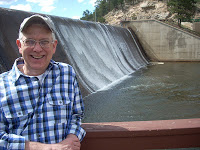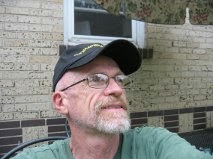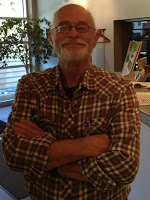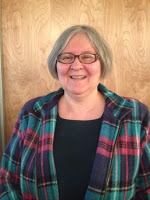· “See the USA in your Chevrolet.”
· “See America first.”
· “I pledge allegiance to the flag of the United States of America.”
· “On my honor, I will do my best to do my duty to God and Country.”
· “Duty, honor, country.”
· “Loose lips sink ships.”
These are all valid expressions of love and loyalty to our native or chosen country. It is natural and normal and expected that we feel some sense of obligation to the people and places that nurture and sustain us. That is why we sometimes refer to the United States as our Mother Country. It is why we usually react more strongly to reports of patricide, matricide, and, especially, infanticide than to other murders. How could anyone do harm to those who have given so much to us–freedom, opportunity, sustenance?
· “Love it or leave it.”
· “My country, right or wrong.”
· Manifest Destiny
· American exceptionalism
· Genocide
· Religious intolerance
· Prejudice
These are manifestations of extreme forms of love and loyalty to those places and people that have nurtured us. There is a flip side to that coin. Just as we love the nurturer (and, perhaps, question how worthy we are of that love), we tend to distrust the stranger, who may not be disposed to see us so favorably. In long ago times, it was the tribe to which we owed our loyalty. It was Arian against the Jew, the Montagues against the Capulets, the Hatfields against the McCoys. All others were with the favored tribe or against it. The “Other” was deemed less than human, disdained by God, fit only to be slaughtered and their bodies left to rot in the sun or be picked clean by vultures.
Thus, America can wage a geopolitical war on Viet Nam or Iraq on the pretext of threat to the homeland while counting only the American dead and wounded and ignoring the order-of-magnitude greater losses on the other side. We systematically and mercilessly brought the Native population of the United States down by 95% over 400 years–an estimated 11-3/4 million people, almost double the number of Jews murdered during the Nazi Holocaust. Every year we hold a celebration in honor of the white man who “discovered” America but about the near extermination of an entire race of humans we are silent. During World War II, we built concentration camps for 110,000 Japanese-Americans, 62% of whom were American citizens.
What constitutes a “tribe” these days is changing. Some Americans have figured out that there is a lot of money to be made by exploiting the very human capacity for pitting “us” against “them”. Thus, the NFL has become a multi-billion-dollar industry which uses human beings as the raw material, violence as the lure, and attachment to a geographical place as the motivator. Only within the past ten years or so have we begun to understand the toll that “cash cow” has taken on its gladiators.
Homo sapiens is almost unique in its capacity to devour its own. No wonder so many are unwilling to acknowledge the fact that we evolved from the primordial slime. How, if true, could we then think of ourselves as the “chosen people”? How, then, could we call others “gooks”, “slopes”, “niggers”, “redskins”, or “chinks”?
In the final analysis, we have to ask ourselves a few questions. Why is it so important to engage in countless hours of tedious research to be able to show that our ancestors came over on the Mayflower or, still less likely, Noah’s Ark? Wouldn’t it be more worthwhile to really get to know our relatives in order to understand whether they were worth giving them the time of day? What I want to know about a person is what they are like on the inside, not the outside. What things were like for them growing up, not where they grew up.
What does their soul look like, not their skin. What makes us unique and wonderful cannot be seen with the eyes or learned from examining their DNA. If you must classify something, measure the temperature of their heart, the depth of their compassion, and the breadth of their wisdom. If these things measure up, then I don’t care if they come from Uranus.
© 11 November 2013





